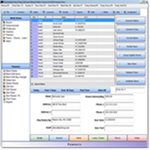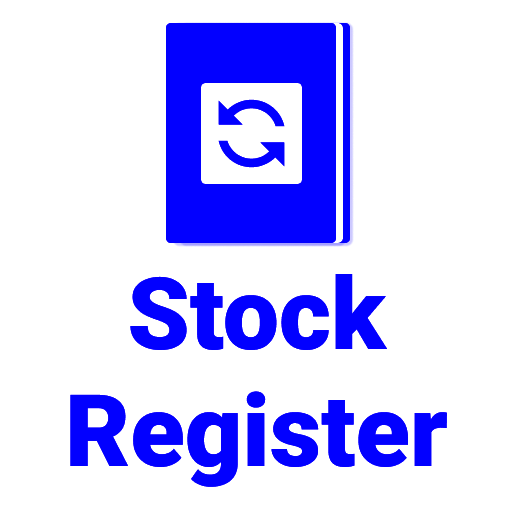What Is Shop Management Software?
Shop Management Software is a comprehensive and user-friendly business solution that enables shop owners and managers to optimize operations and boost productivity. It is an effective solution that integrates inventory management, sales monitoring, customer management, and financial management into a single platform.
Shop management software allows you to effortlessly track and arrange inventory, including stock levels, product data, and supplier information. This enables you to efficiently manage your inventory, minimize overstocking or out-of-stock situations, and maintain smooth operations. Furthermore, the software allows you to manage sales and track your clients' purchasing history, preferences, and contact information.
This not only helps to provide tailored services, but it also aids in the development of strong client relationships. In addition, shop management software includes financial management functions like invoicing, spending monitoring, and profit analysis. This allows you to monitor your money and make smart business decisions. Another important aspect of this program is its reporting and analytics capabilities.
It generates extensive reports and offers useful insights into your company's performance, helping you to pinpoint areas for development and plan for future growth. Furthermore, shop management software is intended to be user-friendly and configurable, making it appropriate for businesses of different sizes and sorts. Whether you own a small retail shop or a large manufacturing facility, this software can meet your specific business requirements.
What Are The Recent Trends In Shop Management Software?
As technology advances, the usage of shop management software becomes more prevalent among organizations. This specialist software streamlines and automates a variety of shop-related processes, including inventory management, sales tracking, and customer management.
To assist you in making an informed selection as a buyer, we have discovered some major trends in this area that you should be aware of.
1. Cloud-Based Solutions: One of the most significant trends in shop management software is the adoption of cloud-based solutions. This means that the software is housed on remote servers, allowing easy access from any location with an internet connection. This not only eliminates the need for on-site servers, but also allows organizations to receive real-time data and changes.
2. Integration With Other Systems: In today's digital world, shop management software must integrate with other systems such as e-commerce platforms, point-of-sale systems, and accounting applications. This interface enables the seamless flow of data and eliminates the need for manual data entry, saving time and lowering the chance of error.
3. Mobile Accessibility: As mobile devices have become more popular, store management software is being created with mobile accessibility in mind. This implies that businesses may access shop data and complete operations while on the go, allowing for greater flexibility and convenience.
4. Artificial Intelligence: As AI technology advances, we are witnessing more integration of AI capabilities into shop management software. This incorporates capabilities like predictive analytics, automated inventory management, and personalised customer suggestions.
5. User-Friendly Interface: In today's fast-paced corporate world, time is critical. As a result, shop management software is becoming more user-friendly, with simple navigation, intuitive design, and customized dashboards to meet a company's individual requirements.
6. Data Security: As the amount of data kept in shop management software grows, organizations have become increasingly concerned about data security. As a result, software developers are adopting strong security measures to keep sensitive data safe and secure.
Benefits Of Using Shop Management Software
Shop management software, sometimes called point-of-sale (POS) or retail management software, is a useful tool for small and medium-sized enterprises. It helps to streamline numerous corporate activities, such as inventory management, sales, and customer management, all in one consolidated platform.
Let's explore, we'll go over the advantages of adopting shop management software and why it's a necessary investment for your business.
1. Effective Inventory Management: One of the primary benefits of adopting shop management software is effective inventory management. It reduces the need for human inventory management by providing real-time stock level tracking, automatic reordering, and barcode scanning capabilities. This not only saves time but also reduces the possibility of human error, resulting in exact stock levels at all times.
2. Streamlined Sales Processes: Shop management software streamlines the sales process by offering a simple interface for adding products, issuing invoices, and taking payments. It also accepts several payment options, including cash, credit cards, and digital wallets, making it easy for clients to pay. This leads to speedier transactions, which can enhance the overall consumer experience.
3. Centralized Customer Management: Shop management software allows firms to store and manage client information in a consolidated database. It may include contact information, purchasing history, and loyalty awards. This makes it easy to track and analyze client behavior, preferences, and purchasing habits, allowing firms to offer more tailored and focused marketing methods.
4. Improved Reporting And Analytics: Another big advantage of adopting shop management software is the ability to create extensive reports and analytics. With a few clicks, you can gain significant insights into sales, inventory, and customer data, helping you to make more educated business decisions. This data is critical for recognizing patterns, projecting sales, and identifying opportunities for improvement.
5. Integration Of Third-Party Applications: Most shop management software integrates with third-party systems including accounting, e-commerce, and marketing. This enables the seamless flow of data between different systems, decreasing the need for human data entry and minimizing errors. It also delivers a comprehensive perspective of your business activities from a single platform, saving time and effort.
Important Factors To Consider While Purchasing Shop Management Software?
When it comes to choosing shop management software, there are numerous key elements to consider in order to make the best option for your company.
This buyer's guide will detail the essential elements to consider while analyzing and comparing various alternatives on the market.
1. Type Of Business: When choosing shop management software, one of the first things to consider is the type of business you own. Different software may cater to specific industries or types of businesses, therefore it is critical to select a solution that is matched to your requirements.
2. Features And Functionality: The next stage is to evaluate the software's features and capabilities. Look for important features like inventory management, sales monitoring, and invoicing, as well as any specialized tools you need for your firm.
3. Usability: Shop management software should simplify rather than complicate your regular responsibilities. Choose a user-friendly solution that your team can readily embrace without extensive training. Look for software with a basic and intuitive interface.
4. Scalability: Your software should be able to grow alongside your firm. Consider the software's scalability and ability to handle larger volumes of data and transactions. This will spare you the difficulty and expense of switching to a new system in the future.
5. Integration With Existing Systems: If you already have other software in place, ensure that the shop management software you choose integrates with it. This will ensure that data is transferred smoothly and your operations are streamlined.
6. Pricing: While cost is a significant consideration, it should not be the sole deciding factor. Look for software that strikes a balance between features, functionality, and pricing. Before making a decision, make sure to evaluate any ongoing fees and hidden expenditures.
7. Customer Support: It is critical to have dependable customer service when utilizing any product. Look for providers who give multiple support channels and a responsive customer service team to assist you with any technical issues or inquiries you may have.
What Are The Key Features To Look For In Shop Management Software?
When it comes to running a profitable shop, effective and structured management is essential. This is where an effective Shop Management Software (SMS) comes into play. But with so many options on the market, it might be difficult to choose the best one.
To help you make an informed decision, here are the main qualities you should look for in an SMS:
1. Inventory Management: Inventory management is one of the most critical SMS functionalities. It should allow you to track and manage your stock levels, reorder products, and generate sales and inventory data. Look for software that enables real-time inventory synchronization across various locations and interfaces with your online sales platforms.
2. Point Of Sale (POS) System: A decent SMS should include an integrated POS system that simplifies the checkout process and eliminates the need for a separate system. Look for barcode scanning, several payment options, and the option to add custom notes or discounts.
3. Customer Relationship Management (CRM): Effective customer management is critical for any business. Look for an SMS with CRM capabilities such as customer database management, purchase history tracking, and loyalty program management. This will allow you to develop strong ties with your customers and secure recurring business.
4. Employee Management: If you have employees, a complete SMS should include capabilities like time tracking, scheduling, and task assignment. This will allow you to efficiently manage your employees and keep track of their production.
5. Reporting And Analysis Detailed: data and analytics are critical for assessing the operation of your shop. Look for an SMS that provides bespoke reports on sales, inventory, and customer information. It should also deliver real-time insights and analytics that will assist you in making data-driven decisions.
6. Multichannel Integration: In today's digital world, it is critical to have a presence on many sales channels. Look for an SMS that integrates with internet marketplaces such as Amazon and eBay and can manage sales from many channels in a single platform.
7. User-Friendly Interface: Complex and confusing software can only slow down your operations. Look for an SMS that has a simple interface that your employees can utilize with little training.
8. Customer Support: No matter how advanced a software is, it is sure to encounter technical difficulties at some point. Look for an SMS service that provides good customer assistance, whether via phone, email, or live chat. 24/7 support is excellent, so you can be confident that assistance is accessible when you need it.
By taking these crucial elements into account, you may choose an SMS that fulfills your shop's specific demands while also helping you optimize your operations, improve client connections, and increase profits.
Why Do Businesses Need Shop Management Software?
Shop management software, also known as retail management software, has become an indispensable tool for companies of all kinds. This breakthrough technology streamlines operations, improves the customer experience, and increases revenues, making it a must-have for every serious shop. One of the primary advantages of shop management software is its ability to centralize and automate a variety of operations, including inventory management, sales tracking, and customer relationship management.
This reduces the need for manual labor, lowering human mistake rates and freeing up time for more important corporate tasks. Additionally, shop management software delivers real-time insights into your business's performance, allowing you to make data-driven decisions. With complete reporting and analytics capabilities, you may receive vital insights into sales trends, inventory levels, and consumer behavior.
These insights allow you to identify areas for growth and optimize your operations accordingly. Furthermore, shop management software enables easy communication and cooperation among various divisions inside your company. Whether you have one store or numerous locations, this technology ensures that all employees are on the same page, resulting in increased efficiency and productivity.
Another key benefit of shop management software is the opportunity to improve the whole customer experience. Businesses can create and sustain strong customer relationships by utilizing features such as customer databases, loyalty programs, and focused marketing efforts. This not only boosts client pleasure, but also their likelihood of returning for future purchases.
Furthermore, shop management software is adaptable and customizable to meet the individual needs of your company. This program can be customized to optimize your business operations, including niche-specific features such as special pricing for wholesale customers and integration with third-party applications. In today's extremely competitive industry, having efficient and effective shop management software is critical to a company's success.
It enables organizations to streamline processes, make more informed decisions, and improve customer experiences, all of which lead to higher revenues. So, if you want your firm to grow, investing in dependable shop management software is a no-brainer.
How Much Time Is Required To Implement Shop Management Software?
The time necessary to adopt shop management software varies depending on various factors, including the size of your company, the complexity of your current procedures, and the level of customization required. On average, the implementation procedure can last from a few weeks to a few months. Several stages will occur during this time, including planning, data migration, training, and testing.
It is critical to devote sufficient time and resources at each stage to enable a smooth transition to the new system. The first phase is planning, in which you will collaborate with the software vendor to identify your company's needs and objectives. This phase is crucial because it establishes the framework for the entire implementation process. Next, you'll need to transfer your data from your present systems to the new program.
This can be a time-consuming procedure, depending on the volume and quality of data being transported. After the data migration is completed, the focus moves to training. To reap the most benefits from the new software, your staff must first learn how to use it successfully. The period of training will be determined by the software's complexity and level of customization.
Finally, you will go through a testing phase to confirm that the software works properly and meets your business needs. It is critical to recognize that the implementation process is not a one-size-fits-all solution. Each company's needs and operations are unique, thus the time required to adopt shop management software will differ correspondingly.
As a result, it is critical to collaborate closely with the software vendor to establish a realistic timeframe and devote the resources to ensure a successful deployment. Investing the necessary time and effort from the start will result in long-term efficiency and production for your company.
What Is The Level Of Customization Available In Shop Management Software?
Shop management software provides numerous benefits to organizations, including enhanced organization, simpler operations, and increased productivity. The level of customisation provided is an important consideration when choosing the best software for your shop. This refers to the capacity to customize the software to meet your individual business requirements and operations. When determining the extent of customisation in shop management software, there are a few crucial factors to consider.
This includes the flexibility to add or delete features, customize the user interface, and integrate with other tools and systems. To begin, highly adaptable software allows you to add or delete features that are tailored to your company's needs. This means you can have a more customized system with fewer features that clutter the interface and slow down your processes.
On the other hand, if your firm expands or needs more features, you can easily add them to the program. Second, the user interface is an important part of customisation. The software should let you change the layout, design, and colors to match your brand and make it easier for your staff to use. It should also allow you to determine which features are displayed and available to different users based on their jobs and responsibilities.
Finally, integration skills are necessary for a smooth process. A customisable shop management software should be compatible with your company's other tools and systems, such as accounting software, inventory management, and CRM systems. This eliminates the need for manual data entry, which saves time and effort. Finally, the level of customisation offered in shop management software can have a big impact on its performance in your firm.
Choosing a fully configurable solution ensures that the software suits your specific requirements and streamlines company procedures for maximum efficiency and growth. Take the time to thoroughly study the customization options of various software before making a decision to ensure you get the greatest fit for your company.
Which Industries Can Benefit The Most From Shop Management Software?
Shop Management Software is a strong tool that has the potential to transform the way businesses manage their daily operations. This software, which is designed to streamline and automate various operations, is especially useful for sectors dealing with inventory management, customer relationship management, and sales tracking. The retail industry can tremendously benefit from Shop Management Software.
With the capacity to analyze inventory levels, manage supply chain processes, and generate sales data, this software streamlines operations and helps retailers keep on top of their businesses. It also gives businesses significant insights about their customers' purchasing habits and preferences, allowing them to develop focused marketing tactics. The manufacturing business can also benefit from Shop Management Software.
Manufacturing plants handle a high amount of orders, materials, and inventory, so an efficient management system is required. Shop Management Software enables firms to track materials, manage production schedules, and monitor order fulfillment, resulting in timely product delivery and increased overall productivity. Auto repair shops can also benefit from Shop Management Software.
This software, which includes functions such as appointment scheduling, parts ordering, and customer record management, optimizes the complete car repair shop operations. It also gives mechanics and technicians access to repair history and client information, which leads to improved customer service and more accurate billing. In addition, Shop Management Software can aid industries such as construction, agriculture, and culinary services. These businesses frequently handle big volumes of inventory, equipment, and orders, and having a software solution in place can significantly ease these complex procedures.
Conclusion
Based on our extensive study and research of numerous shop management software choices, we can definitely declare that investing in this type of platform is a must-do for any firm trying to streamline and optimize its operations. Shop management software not only provides a unified system for managing chores like inventory, customer interactions, and sales, but it also delivers vital data and insights to help businesses make better decisions.
These platforms, which include features such as automatic invoicing, sales tracking, and personnel management, have proved to boost efficiency, eliminate human errors, and ultimately save time and money for businesses of any size. When deciding which shop management software to buy, it is critical to prioritize selecting a system that fulfills your specific company requirements and seamlessly interacts with your existing procedures.
This could incorporate features like cloud-based accessibility, customisable reporting, and compatibility with other critical software. Furthermore, reviewing customer evaluations and getting recommendations from similar organizations can provide useful information about the usability and effectiveness of various solutions.
To summarize, investing in shop management software can significantly help your organization by streamlining operations, delivering vital data, and enhancing productivity. By carefully weighing your alternatives and picking a platform that matches your individual requirements, you can propel your business forward and stay ahead in a competitive industry. We hope our buyer's guide has given you enough information to make an informed decision and locate the best solution for your business.















